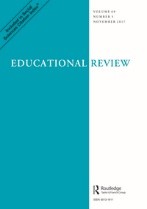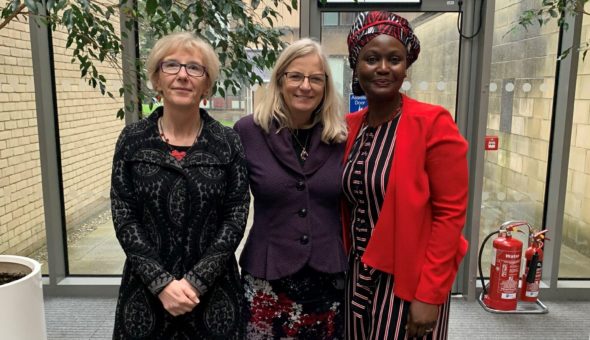Goodall, Janet. 2017. "Learning-centred parental engagement: Freire reimagined." Educational Review:1-19. doi: 10.1080/00131911.2017.1358697.
Many years ago, Paulo Freire was one of a group of writers who insisted that we look at our processes of schooling differently, that we examine the power relationships in our classrooms clearly. He highlighted what he called the “banking model of education” (Freire 1970), which saw knowledge as a commodity which could be transferred, more or less intact, from teacher to student.
We no longer accept this sort of teaching in our schoolrooms; we have, in general, accepted a constructivist stance and help young people to build knowledge for themselves.
The way we treat parents, however, and other family members, has not altered in the same way. In this article, I used Freire’s banking model of schooling as a lens through which to examine how parents are treated in schools. For all that we have moved a long way in relation to our children’s learning, along the lines suggested by Dewey (Dewey 1986, 1897), Montessori (Montessori 2013) and others as well as Freire, our relationships with families still seem to be stuck in a much earlier paradigm.
In this article, I build on Freire’s work on power and relationships, and marry this to the literature around parental engagement with children’s learning. We have known for some time that one of the best levers we have to narrow the achievement gap between children from different backgrounds is the engagement of their parents in their learning (Desforges and Abouchaar 2003). Many schools still see engagement as being about relationships between parents and schools, rather than about parent’s engagement in learning, per se, yet the value of parental engagement is to be found in the home learning environment (Sylva et al. 2008, Goodall and Montgomery 2013). Freire’s work provides a useful framework for moving toward partnership working with parents, (Goodall 2017), through an examination of the power relationships involved.
This marrying of Freire’s work with the research around parental engagement with children’s learning allows us to move to a series of five statements, which suggest a new view of parental engagement: that school staff and parents both participate in supporting the learning of the child, that both partners value the knowledge that the other brings to the partnership, that there is dialogue around and with the child’s learning, that all actions around that learning are taken in partnership, and that both partners respect the legitimate authority of the other’s role and contribution to the learning of the child. Moving to this point will be neither easy nor quick, but it will be in the best interest of all of our children.
Desforges, Charles, and Alberto Abouchaar. 2003. The impact of parental involvement, parental support and family education on pupil achievement and adjustment: A literature review. London: Department of Education and Skills.
Dewey, John. 1897. "My Pedagogic Creed." The informal education archives; First published in The School Journal, Volume LIV, Number 3 (January 16, 1897), pages 77-80. Accessed 18.01.03. http://www.users.globalnet.co.uk/~infed/e-texts/e-dew-pc.htm.
Dewey, John. 1986. "Experience and education." The Educational Forum.
Freire, P. 1970. Pedagogy of the oppressed. Translated by translated by Myra Bergman Ramos. London: Penguin Books. Original edition, 1996;Originally published by The Continuum Publishing Company.
Goodall, Janet. 2017. Narrowing The Achievement Gap: Parental Engagement With Children’s Learning London: Routledge.
Goodall, Janet, and Caroline Montgomery. 2013. "Parental involvement to parental engagement: a continuum." Educational Review:1-12. doi: 10.1080/00131911.2013.781576.
Montessori, Maria. 2013. The montessori method. New Brunswick: Transaction Publishers.
Sylva, Kathy, Edward C. Melhuish, Pamela Sammons, Blatchford Iram Siraj, and Brenda Taggart. 2008. "Final report from the primary phase: pre-school, school and family influences on children-s development during Key Stage 2 (Age 7-11)."165.
Respond


